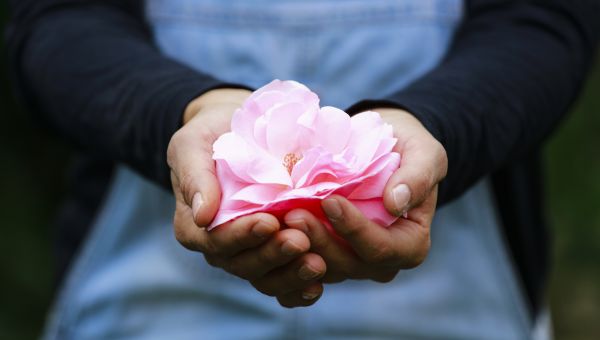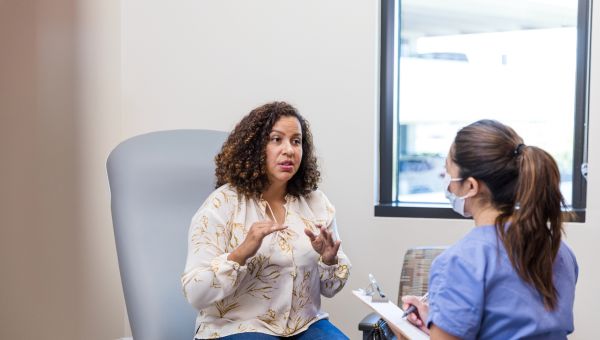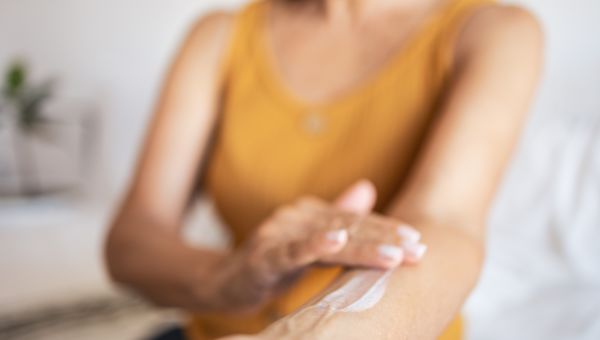4 Ways to Maintain a Vibrant Sex Life As You Age
Lifestyle changes and hormonal shifts can affect your vagina during perimenopause and beyond—here’s what you can do to feel more comfortable.
Updated on June 28, 2023

As we move into our 40s and 50s, so many things adapt and change. It’s the time of life when work stress and family responsibilities may be ramping up, while the physical changes of perimenopause and menopause can make your vagina feel very… well, different. If you’re experiencing some discomfort and it’s affecting your libido, there are plenty of things you can do to rejuvenate both your vagina and your sex life. Urogynecologist Lisa Jambusaria, MD, of TriStar StoneCrest Medical Center in Smyrna, Tennessee shares tips on how to manage this type of discomfort and protect your well-being.

Check up on your hormones
During middle age, your estrogen levels start to drop, and the vulva and lining of the vagina become thinner, drier and less elastic, due to decreased blood supply, says Jambusaria. (If you’re not having regular intercourse, the vagina can also start to narrow and shorten, she adds.)
If lack of lubrication and increased tightness are making intercourse less pleasurable, ask your health care provider (HCP) about vaginal estrogen therapy, which Jambusaria says she recommends for many of her postmenopausal patients who have concerns about sex. The treatment comes in the form of creams, tablets, inserts, or suppositories and can increase natural lubrication and elasticity in the vagina so that sex is more enjoyable.

Lift your libido
Estrogen and testosterone levels decrease beginning in perimenopause, and this can affect libido, says Jambusaria. Menopausal symptoms, like hot flashes and night sweats, along with typical midlife stressors, such as caring for aging parents while taking on more responsibilities at work, can also leave people exhausted and not really in the mood to have sex.
In fact, the word libido encompasses many different things. “It has to do with emotional desire, comfortability, desire for your partner, confidence in your body and self—and some of these things can change with aging,” Jambusaria says. Your sex drive can be affected by everything from antidepressants and blood pressure medications to arguments over how to save for retirement. Be sure to talk to your HCP about any drugs or supplements that you take and whether they can affect libido. And if your relationship is rocky, consider seeking couples counseling to help you and your partner work through any issues.

Take steps to ease any pain
Talk to your HCP if you are feeling physical pain during penetration. Vaginal estrogen can help with lubrication. Kegel exercises and pelvic floor physical therapy can strengthen the area, which may also help prevent pain. For those experiencing some discomfort during sex, take it slowly, Jambusaria advises, noting that using a vaginal lubricant to create more moisture can also help. Vaginal dilator therapy, a process that involves slowly inserting a vaginal dilator, or plastic round-tipped cylinder into the vagina while lying on your back, can help open up the vagina and maintain its length for more comfortable sex.

Take steps to increase arousal
Sexual pleasure and arousal can start in many places around the body that don’t begin with a V—blowing in the ear, backrubs, footrubs, and gentle caresses can all help get you in the mood. Other ways to stimulate the clitoris and increase blood flow include masturbation and, if you like, using sex toys like vibrators, dildos, or clitoral suction devices, says Jambusaria. “These practices can help increase the blood supply to the clitoris, so you can become aroused and reach climax faster,” she says. Exercise also encourages blood flow to the vagina, while yoga helps relieve stress and activates feel-good chemicals in the brain.
More On


video

article

slideshow


video


video
